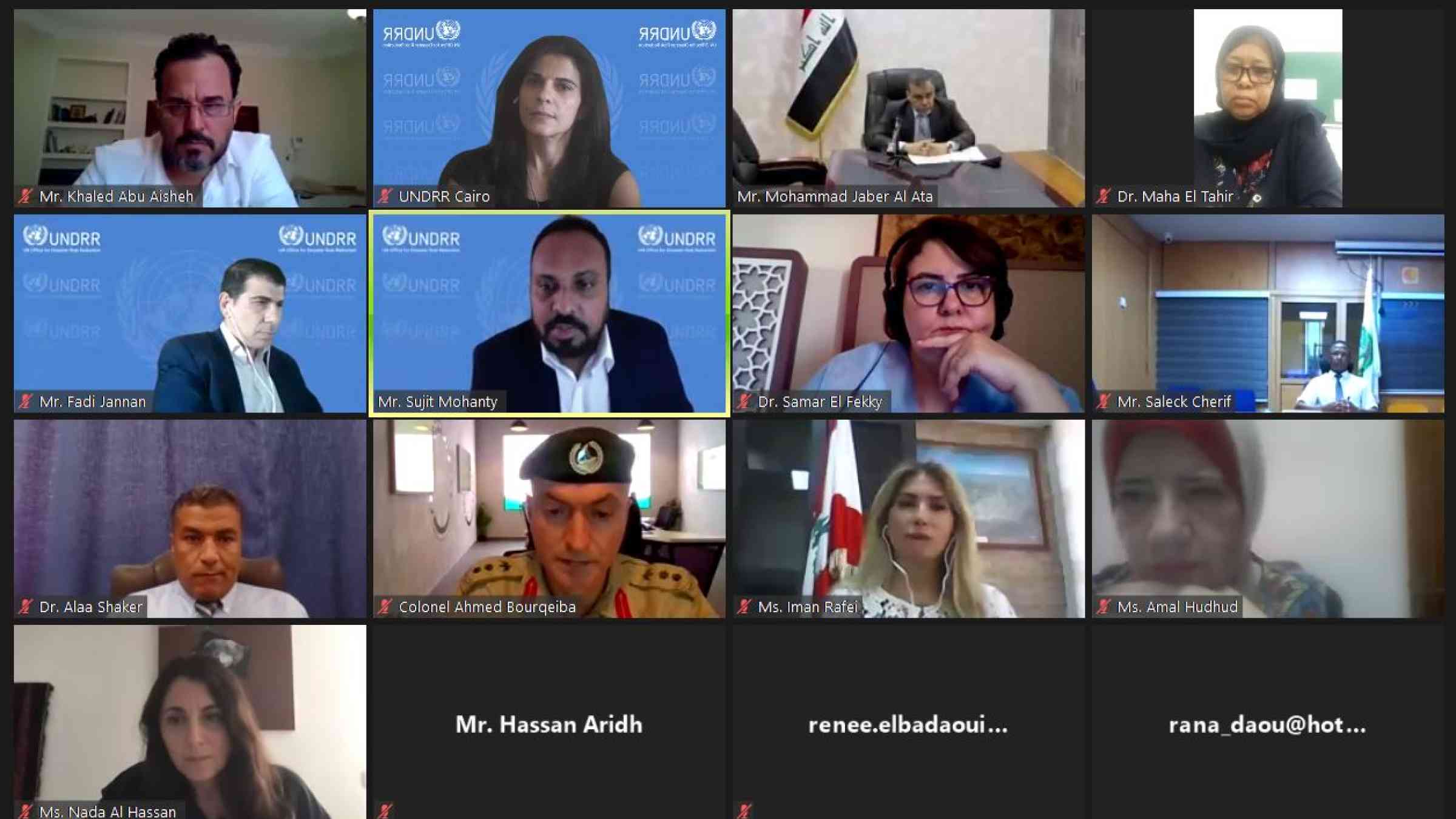Arab Cities & COVID-19: Disaster Preparedness and Emergency Response Webinar

National and local governments in the Arab region have undertaken timely actions to contain COVID 19 and respond to its threats on their health systems, economy and society. In line with threcignition of the 2030 Agenda for Sustainable Development, Paris Agreement for Climate Change, Sendai Framework for Disaster Risk Reduction and the New Urban Agenda for the importance of actions by local governments to create inclusive, safe, resilient and sustainable human settlement, this webinar was organized by the UNDRR Regional Office for Arab States cities on July. 27, 2020 to discuss the lessons learned in responding to COVID-19 and facilitate a city-to-city exchange among local governments on effective emergency preparedness and response that is sensitive to biological hazards.
The webinar discussed the socio-economic impacts of the pandemic, context-specific and rapid rescue measures taken by cities to protect vulnerable populations and sustain the provision of basic services. Mr. Sujit Mohanty, UNDRR (ROAS) Chief highlighted that it is really evident that countries with pre-existing national emergency plans or disaster risk reduction strategies are able to cope better with the COVID-19 crisis and although it is not possible to say that any response was 100% perfect, countries who traditionally invested a lot on preparedness and response for any hazard are able to deal with the situation in a better way since they already have the institutional arrangements, response capacities and preparedness.
Mr. Mohanty’s closing remarks pointed out that it is really evident that countries with pre-existing national emergency plans or disaster risk reduction strategies are able to cope better with the COVID-19 crisis. He further elaborated that although it is not possible to say that any response was 100% perfect, countries who traditionally invested a lot on preparedness and response for any hazard are able to deal with the situation in a better way since they already have the institutional arrangements, response capacities and preparedness. He added that there is still room for improvement and that one of the issues highlighted globally through the series of webinars conducted by UNDRR is the issue of risk governance in terms of coordination between different sectors, different ministries ..etc. The pandemic has also raised the most impotant issue of interconnectedness of systems, governance, the society, interdependency between countries in local, national and global contexts. Now being more connected and interdependent than ever, making it more important to re-evaluate the whole risk governance process. Mr. Mohanty clarified that having a national disaster risk reduction strategy or plan is not enough, a downscale operational plan on the local level that allows effective response is needed, which is something that needs to be acknowledged and strengthened. “Not all cities are the same, some are more resourceful with more capacities and others are at different levels of preparedness with challenges mentioned earlier throughout the webinar. These identified gaps need concentrated efforts not only from national and local levels but regional and global ones as well, ” he added. Mr. Mohanty emphasized that we should look at the systemic nature of risk and we cannot look at disasters and risks in isolation through a hazard by hazard approach or through a specific department in the government but rather a whole of government, all-of-society and integrated approach of looking at risk is the way forward. He also stressed on the importance of investing more locally so cities and local governments have the needed capacities to deal with similar crises. Mr. Mohanty concluded that there are many unknown hazards and risks that we should keep on mind, focusing all the attention on the pandemic or health issues should not be the case. We need to be prepared for any kind of hazards and strengthening the local level is an absolute must.

